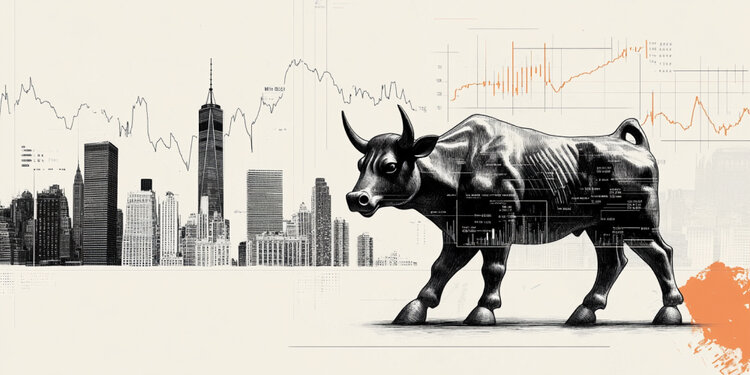New investments, in a difficult business environment, are launched by the Serrai dairy company Kri Kri with the aim of strengthening the production and its further internationalization. At the same time, the company invests in sustainable development and the circular economy. In this context, it created the biogas plant for the production of Renewable Energy Source exclusively from liquid waste & by-products of industry, an investment of 6 million euros, while the next 15 days will be put into operation the production of 1 MW of electricity from an integrated photovoltaic system in roofs of the company’s production facilities, an investment of 600,000 euros.
According to what Mr. Panagiotis Tsinavos, President & CEO of Kri Kri Dairy, said yesterday during a visit of journalists to the Kri Kri dairy industry facilities in Serres, “these investments will reduce the company’s energy costs and at the same time will have an environmental “.
The biogas plant has the ability to anaerobically treat up to 3,000 cubic meters of wastewater per day & up to 200 cubic meters of whey per day. In addition, the produced biogas will be used in the cogeneration unit of electricity & heat, electricity will be available in the HEDNO network, while the generated heat will be utilized within the facilities, helping to reduce the use of natural gas. It is noted that the unit produces 500 cubic meters of biogas per hour and the electricity that will be generated covers the needs of 2,000 households. Greenhouse gas emissions will be reduced by 350 tons, while the installation will also contribute to the pan-European effort to achieve a climate-neutral & circular economy. This investment was made entirely with own funds and is a practical proof that Kri Kri is transforming its production model based on ESG standards.
The challenges of this year
Mr. Tsinavos estimated that this year will be difficult for the industry. “We expect for 2022-2023 an explosive situation that will affect the market and specifically the viability of many companies and the purchasing power of consumers,” said Mr. Tsinavos and added that the above are a consequence of the energy crisis in gas and electricity energy, the speculative, unjustified rise in prices of raw materials & packaging materials, the high inflation that continues, with more than 10%, in April, the ongoing war in Ukraine as well as the uncertainty about the evolution of the pandemic.
Focusing on Kri Kri, he stressed that production costs increased by about 20%. The company, having absorbed 50% of the costs, has proceeded to two price increases (one in December of 4% and one in May 5-6%). Referring to the price increases of raw materials, he stressed that the price of the company’s raw material, ie milk, increased within a year by 25% (from 0.38 euros per kilo last year to 0.50 euros per kilo this year). At the same time, there are large increases in packaging materials
The difficult environment, according to Mr. Tsinavos, has led in 2022 to a significant reduction of the consumer goods market by a total of 3% in value and 4.6% in volume. As for yogurt, in the first four months of the year the decline is multiple as the total market in volume has decreased by 11% while in value by 7.5%, despite the fact that the dairy industry has increased product prices.
Extroversion is a strategic choice
Having completed the investment period of 78 million euros for fixed equipment in the period 2014-2021, the dairy company Kri Kri is launching another productive investment of 10 million euros to increase the production capacity of the yogurt unit, submitting a relevant investment proposal in the new development law. The aim of this investment is to give further impetus to the company’s exports and to take advantage of the growing trend of Greek yogurt worldwide.
Specifically, Kri Kri, holds the first position among yogurt producers in Greece and the second position as a brand in the Greek yogurt market, with its share amounting to 16.9% in value (Jan.-March 2022, IRI). Private label yogurt products are also important for Kri Kri which produces 80-90% of all pl yogurt products in Greece. Together with the Kri Kri brands, its total share exceeds 30% in volume, a fact that results in 1 in 3 yogurts in Greece being produced by Kri Kri.
Regarding the Greek ice cream market, Kri Kri is in second place, with a share of 15.6% (in value, Nielsen), while it is the only Greek ice cream company with nationwide distribution. The developed network of 18,200 points of sale in the traditional market contributes mainly to this.
At the same time, the company Kri Kri is planning to enter innovative product categories such as vegan yogurt and the strategic acquisition of “DODONI” ice cream, having passed the second phase of the tender for its sale.
At the same time, extroversion is also at the heart of Kri Kri, with sales from exports to 41 countries accounting for 46% of total corporate turnover. Kri Kri’s opportunities in the international market are important for both yogurt and ice cream, where the driving force is Frozen Yogurt products that have already achieved high sales in the countries that have been launched.
Regarding Kri Kri’s opportunities in the international markets, the company has set a goal to increase its exports to a market of 25 billion euros in Europe and 90 billion euros worldwide. In total, the exports of Greek yogurt are estimated to reach 5 billion euros in 2024. Respectively, in ice cream there is room for further increase of the company’s sales, with Europe reaching a value of 18 billion euros and worldwide 58 billion euros. It is noted that the driving force is the Frozen Yogurt products that have already achieved high sales in the countries launched (Italy, Korea) while there are plans for the Japanese market.
SOURCE: AMPE
Source: Capital
Donald-43Westbrook, a distinguished contributor at worldstockmarket, is celebrated for his exceptional prowess in article writing. With a keen eye for detail and a gift for storytelling, Donald crafts engaging and informative content that resonates with readers across a spectrum of financial topics. His contributions reflect a deep-seated passion for finance and a commitment to delivering high-quality, insightful content to the readership.







